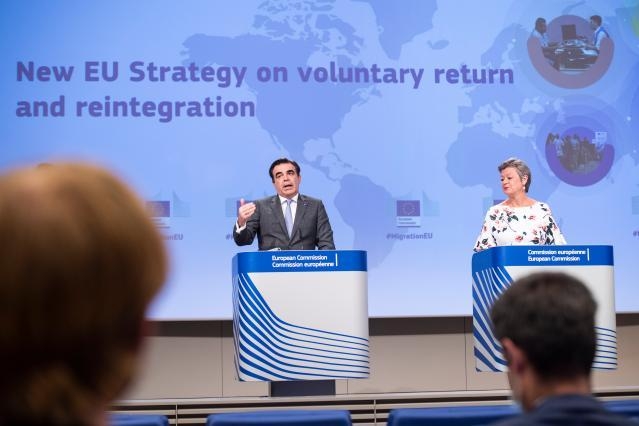Just days before an EU summit that will have immigration as one of its central themes -along with Ukraine and support for European industry - eight member States intend to put pressure on their peers to strengthen barriers to irregular arrivals in Europe.
The heads of state and government of Austria, Denmark, Estonia, Greece, Latvia, Lithuania, Malta and Slovakia have drafted a joint letter calling mainly for better protection of external borders, faster returns for failed asylum seekers, and new repatriation agreements with third countries.
The leaders write in the letter, addressed to European Commission President Ursula von der Leyen and European Council President Charles Michel, that they feel the current asylum system is broken and primarily benefits human traffickers, who profit from the misfortunes of women, men and children.
The European Commission has announced, for its part, that it will launch a study on the impact of the EU’s immigration policy on migrants.
Belgium decries non-application of the 'Dublin' rules
The call by the eight member States comes amid increases in application bids received in some countries.
Austria, for example, like other European countries, has experienced, in recent months, a volume of asylum applications equivalent to the number recorded during the 2015-2016 crisis.
In Belgium, it is mainly secondary movements and the lack of application of the 'Dublin' rules (according to which the asylum application must be processed in the first European country of entry and registration) that are being pointed out. The government regularly raises this issue as being responsible for the current saturation of the reception network.
For several years, the EU has been trying to modernise its entire asylum system, based on the 'Migration and Asylum Pact' proposed by the Commission in September 2020.
'Discussions on a new asylum policy must be concluded quickly'
“The existing rules must be applied and the discussions on a new asylum policy must be concluded quickly,” Alexander De Croo urged the House on Monday. The prime minister expects the Thursday-Friday summit to produce “operational conclusions” that should complement, and in some aspects “accelerate”, the current legislative work on the Pact.
In a letter to the 27 ahead of the summit, Ursula von der Leyen highlighted four areas in which the Commission believes it is possible to act without delay: strategic external border points, border procedures and return decisions, Dublin transfers and solidarity, and work with third countries.
This is a “balanced” vision, according to De Croo.

